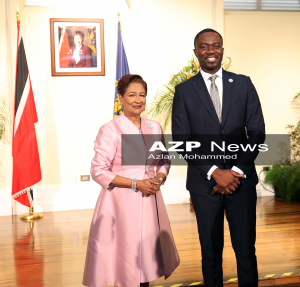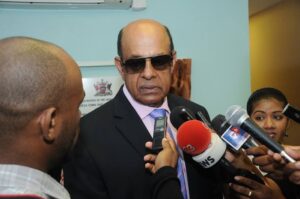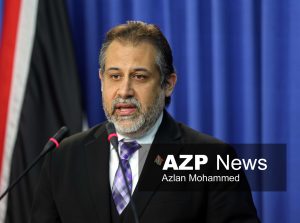By Sue-Ann Wayow
NO child has ever been denied admission to a secondary school based on religion or ethnicity.
Neither is there evidence to suggest any pattern of bias over the decades of the existence of schools managed by the Presbyterian Educational Board.
This was the statement made by the Presbyterian Church of Trinidad and Tobago (PCTT) in response to a commentary published by Newsday written by Professor Theodore Lewis in which he stated that children of African descent were not treated fairly in the education system.

The PCTT is responsible for the management and administration of 72 primary and five secondary schools which have a history of producing top performers and scholarship winners.
The PCTT stated on Wednesday, “We have never interfered with the MoE’s (Ministry of Education) selection process. All students in our secondary schools are offered the same educational opportunities and many have reached their full potential as a result of the stewardship of generations of members and other stakeholders. It was, therefore, deeply disappointing and disturbing to see baseless and misleading insinuations made in a recent opinion editorial which must be vehemently denied.”
The PCTT stated that the Church and Boards of Education were at all times guided by the provisions of The Constitution, Education Act, Teaching Service Regulations, Public Service Regulations as adopted by the Teaching Service and all other relevant legal provisions that govern the education system.
The Church and Boards of Education also adhere to the provisions of The Concordat and the policies developed and designed by the Ministry of Education for the effective functioning of schools, the PCTT stated.
The PCTT stated, “The positive tone, ethos, discipline, culture and climate of our schools have evolved over decades due to the hard work, commitment, diligence, professionalism and aim for excellence from our educators, students, parents and other stakeholders in partnership.”
There was a high demand for school placement in the primary schools and which was due to the performance of these schools in the academic, sporting and cultural fields which are steeped in excellence, the PCTT added.

The PCTT stated, “Admissions to our 72 primary schools are based solely on the criteria and policies set out be the MoE which include age, immunisation status, and residence in the catchment area among others. It must be emphasised that all admissions to Presbyterian Primary Schools are based on the MoE’s criteria. The Church has made no intervention in this regard and has never indicated that race and ethnicity must be used by Principals in their selection of students. No child has ever been denied admission based on religion or ethnicity nor is there evidence to suggest any pattern of bias over the decades of the existence of our Schools.”
The PCTT explained the placement for secondary schools.
For secondary schools, 80% of Form 1 placement is based on the ministry’s system out of the results of the Secondary Entrance Assessment (SEA). The remaining 20% intake is then allocated for selection by the principals of each of the five secondary schools which is on average 21 students annually.
As part of the Concordat, these places were allocated to the denominational bodies to make provision for students belonging to the respective faiths in Trinidad and Tobago. Selections by principals were guided by a rigid criteria based on recommendations from 24 pastoral regions, the PCTT stated.
Referring to history, the PCTT stated that its origins began from a Canadian Mission to the Indian diaspora post-indentureship, and, as a result many of the schools and churches are located in former farming communities in rural south and central Trinidad, the demographics of which are predominantly Indo Trinidadians.
The PCTT stated, “Despite this, our secondary schools have the proud history of being non-discriminatory to any race, ethnicity, or religion and are privileged and blessed to be the first choice school for many high achievers at the SEA examinations.
And the PCTT is reassuring that despite the extraordinary times of the Covid-19 pandemic will continue to work in the nation’s interest by continuing to promote excellence in and ensuring that “Every creed and race find an equal place.”
See related stories:
![]()












